Why Do Cats Pee on Things? (The Truth Revealed)
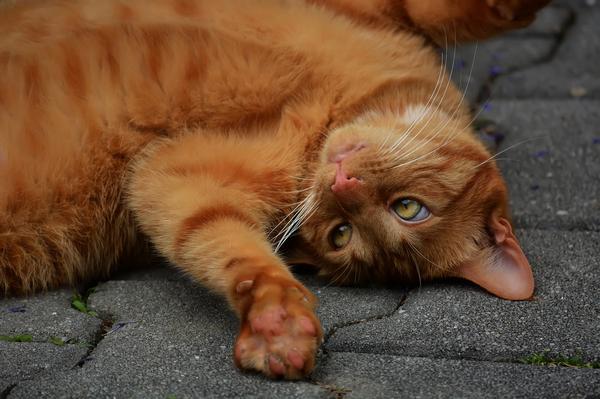
Look, here's the truth:
Your house has turned into a litter box, and the stench is driving you up the wall. 🤢
You're constantly cleaning up after your furry friend, and it's becoming a never-ending nightmare.
But hold on, because if you don't act now, this problem will only get worse.
Your frustration will turn into desperation, and your beautiful home will be permanently marked by feline urine.
Don't let guilt and embarrassment consume you.
I've got the solution you've been desperately seeking.
In today's guide, I'll reveal how to put an end to this pee-soaked madness and reclaim your sanity.
Let's get started before it's too late!
Understanding the Reasons Behind a Cat's Urinating Behavior
Cats urinate outside the litter box due to various reasons, including territorial marking and underlying physical or emotional issues. To address this behavior, provide vertical scratching posts, schedule regular vet check-ups, and create a cat-friendly environment with cozy spots and hiding places.
Cats urinate outside the litter box for various reasons.
It's not solely because they're angry at you (although who knows what goes on inside their tiny, furry brains).
One reason cats urinate around is to stake their claim.
They're basically saying, "Hey, this is mine!"
It's like when your neighbor continuously parks in your designated spot, and you leave a passive-aggressive note on his windshield.
Another reason cats urinate outside the box is linked to physical or emotional issues.
Stress, anxiety, or even an underlying health condition could be behind this behavior.
So it's essential that you pay attention.
Now that we understand why cats do this, let's discuss solutions.
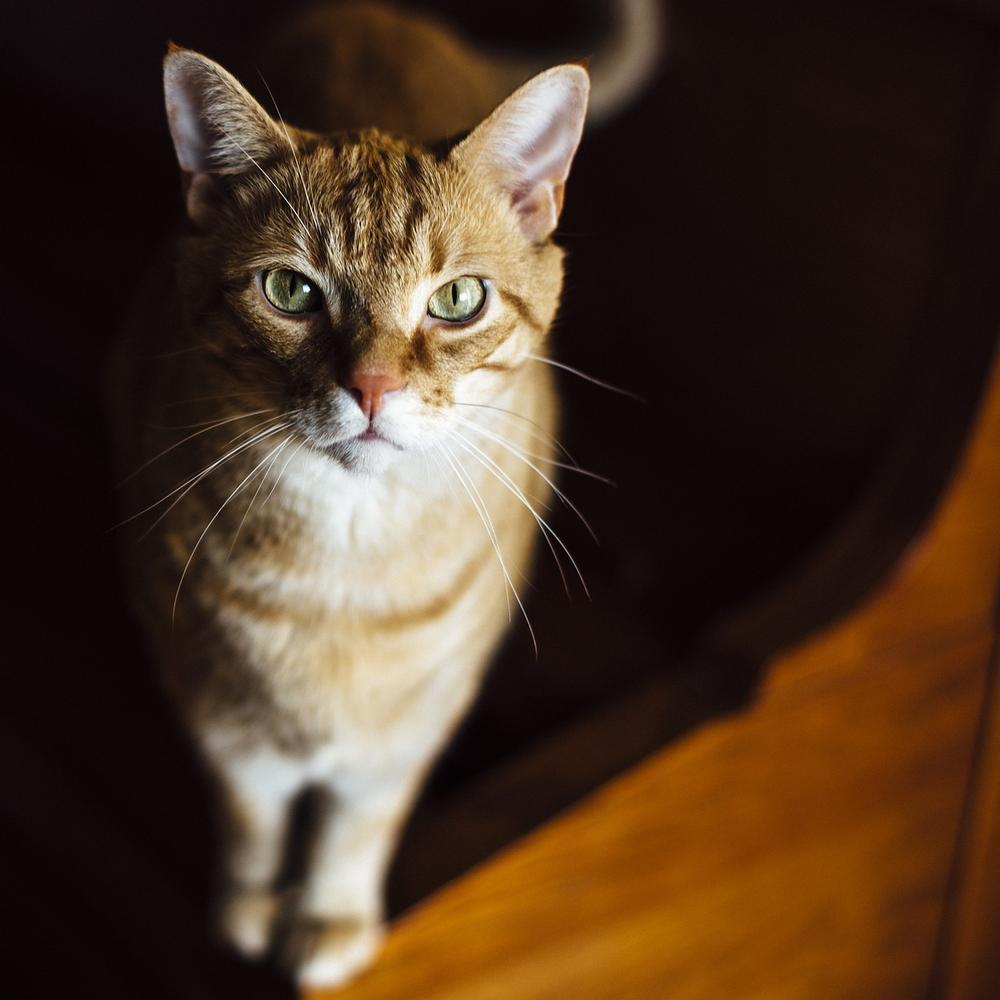
Providing your little feline friend with multiple vertical scratching posts can help fulfill their natural instincts.
They need suitable outlets to scratch and stretch.
But there's more to it...
You also need to regularly schedule check-ups with the vet for your cat.
This way, you'll catch any potential health problems early on.
Creating an environment that is cat-friendly can also be beneficial.
Ensure they have cozy spots, hiding places, and things to explore.
Cats aren't looking to ruin your life.
They urinate outside the box because something is bothering them. Figure out what that something is, and then tackle it directly. 😺
Main points I'll expand upon further down this article:
- Inappropriate urination in cats can be due to medical issues or behavioral factors.
- Medical causes include FLUTD, urinary obstruction, diabetes, kidney disease, and UTIs.
- Symptoms of UTIs in cats include straining, blood in urine, and frequent urination.
- The first step in addressing the issue is ruling out medical problems.
- Idiopathic stress-induced cystitis is the most common medical cause.
- Behavioral causes can include medical conditions, litter box aversion, territorial behavior, and attraction to another location.
- Changes in the home, like rearranging furniture, can cause stress and lead to urine marking.
- Cats may pee outside the litter box to communicate with their owners.
- Cats may not be happy using their litter tray due to various factors such as location, accessibility, and cleanliness.
- It's important to seek veterinary help to rule out underlying medical causes.
And it gets worse...
If left untreated, these urinary issues can lead to serious complications for your feline friend.
So, let's dive deeper into the causes and solutions for this problem to ensure your cat's well-being.
Common Medical Issues that Cause Inappropriate Urination in Cats
Bladder stones, my pal, they can be a pain in the ass.
And yup, these pesky rocks are often to blame for cats peeing in the wrong places.
Now let's chat about the various things that can cause this issue.
First off, medical problems.
Oh boy, there's quite a few.
Feline Lower Urinary Tract Disease (FLUTD) is a major one.
Then there's urinary obstruction, diabetes, kidney disease, and urinary tract infections (UTI).
Believe it or not, stress can also contribute!
When it comes to UTIs in cats, keep an eye out for some telltale signs.
Struggling to pee, blood in the urine, and lots of trips to the litter box...
Yep, those are definitely warning signs.
You know what?
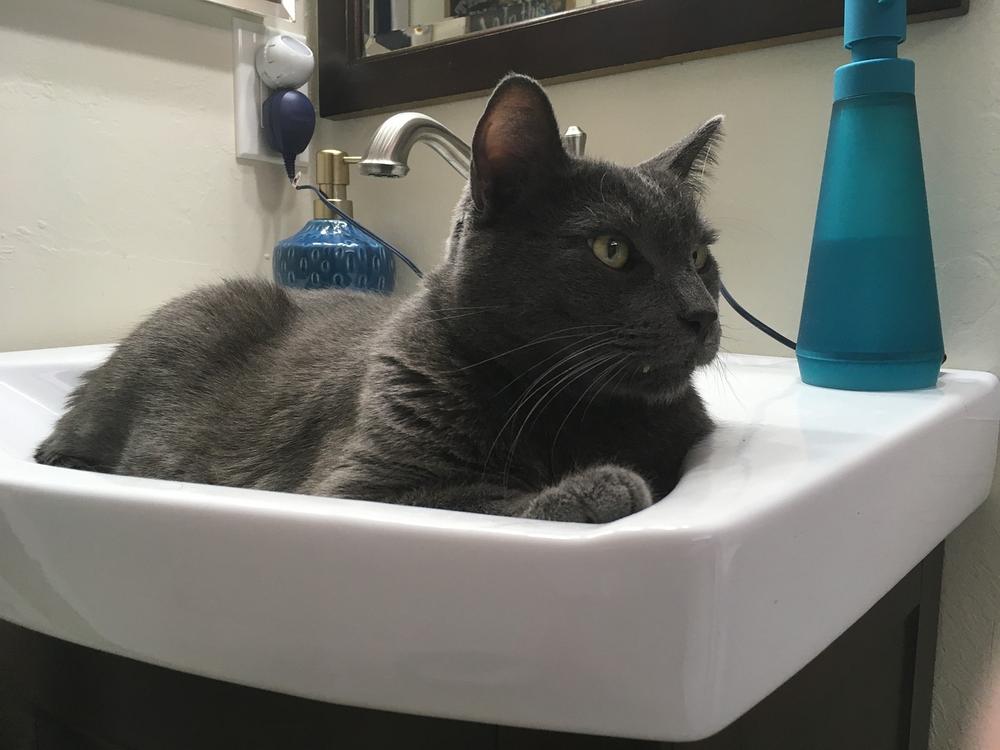
The first rule in tackling this problem is ruling out medical issues.
Get a urinalysis and bladder radiographs to get the full picture of what's going on down below with your feline buddy.
But guess what?
It's not always a serious medical condition causing the issue.
Sometimes it's something called idiopathic stress-induced cystitis, which means it's caused by stress, even though we can't figure out the exact cause.
Gotta love the mystery of cats, right?
And my friend, don't forget about behavior-related causes!
Disliking the litter box, territorial behavior, or being attracted to another area in your home can all make your cat pee everywhere except where they're supposed to.
But hey, don't fret, because there are solutions!
Making changes in their environment, using medications, and providing specific diets can do wonders for your furry companion.
For example, try feeding them a low-magnesium and low-phosphorus diet that promotes urinary tract health. That'll help prevent those annoying bladder stones and keep your cat's overall well-being in check.
But what about when there doesn't seem to be a medical issue causing your cat's inappropriate urination?
Well, let me tell you, my friend, it could all come down to stress and the need for a safe hiding space:
How Stress and Anxiety Can Lead to Urine Marking in Cats
To help your cat overcome stress and anxiety, take these 10 simple steps:
- Create a safe and secure hiding space for your feline friend.
- Keep things consistent in your home to minimize changes that may trigger stress.
- Provide vertical spaces for your cat to climb and perch on.
- Use pheromone sprays or diffusers designed to reduce anxiety in cats.
- Play with your cat regularly to provide mental and physical stimulation.
- Establish a routine for feeding and playtime to give your cat a sense of security.
- Avoid sudden introductions of new animals or humans into your cat's environment.
- Maintain a clean litter box, as a dirty one can cause additional stress.
- Consider providing multiple litter boxes in different areas of your home.
- Seek advice from a veterinarian if your cat's stress and urine marking continue.
Creating a stress-free atmosphere for your cat is key to preventing urine marking behavior.
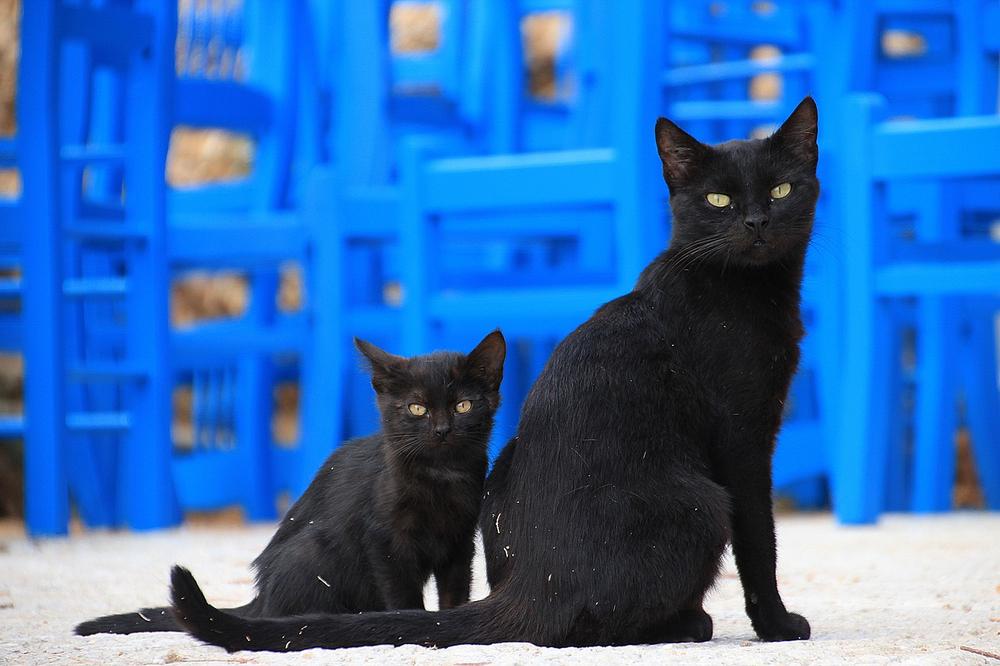
And now, let's delve deeper into the reasons behind litter box aversion and explore potential solutions that can help address this issue...
The Importance of Proper Litter Box Placement and Maintenance
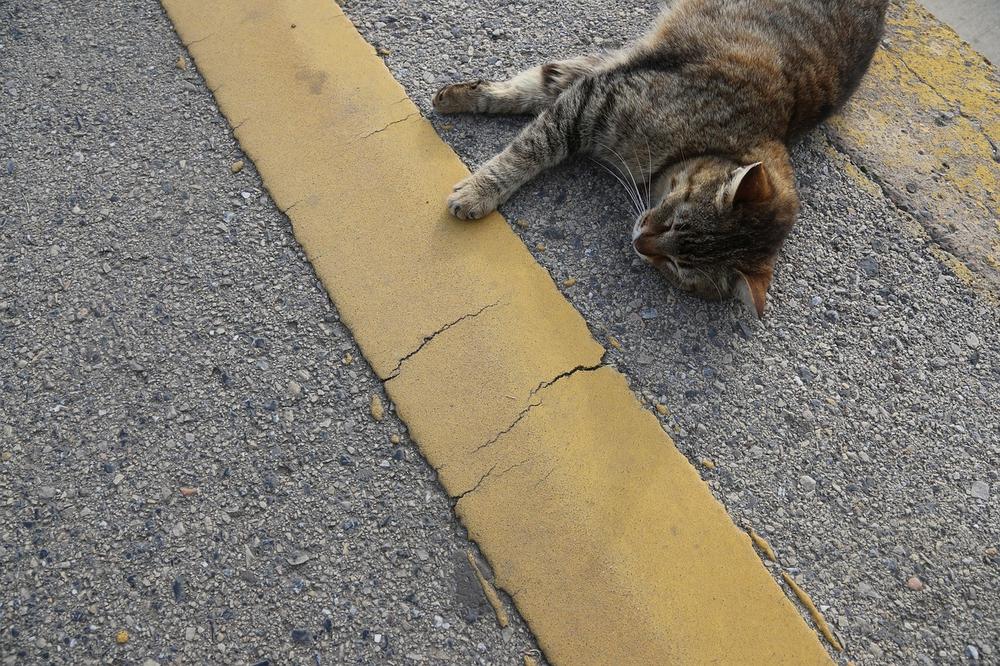
To ensure your kitty is content, it's super key to set up and take care of their litter box just right.
- To make things easy for your cat, try putting a few litter boxes in different spots around your home, especially if you have multiple floors.
- Cats might skip using the litter tray if it's not convenient or clean enough for them, so make sure to give it a good cleaning every day.
- Don't let the litter box get too dirty or use strong-smelling cleaners because that could turn your cat off from using it.
- Moving the litter box to a spot your cat prefers can really make a difference. They're pretty picky about their litter boxes, so if they're dirty, uncomfortable, small, covered up, stinky, or feel weird, your cat may not want to go near it.
- If the litter box isn't kept clean, your cat might start peeing outside it. So, it's worth thinking about the type of box and where you put it to solve this problem.
- Cats like their litter boxes to be in quiet places with low foot traffic that they can easily get to. Sometimes, they'll pee in plants because they like how soft they are and it feels more natural to them.
- Try switching up the type of litter you use or add a little something to attract your cat to the litter box instead.
- Make sure to keep the litter box fresh by scooping it out every day and giving it a thorough cleaning every couple of weeks.
- Put the litter box somewhere active but away from loud noises or vibrations, so your cat feels comfortable and safe when they do their business.
Your furry pal will have the ideal litter box arrangement by following these guidelines!
How to Choose the Right Litter Box for Your Cat's Needs
Consider what your cat needs when choosing a litter box.
You know, cats can be picky creatures when it comes to their bathroom habits.
So choose a litter box that suits your furry friend's needs.
Size and accessibility matter for your cat.
First, think about your cat's age and agility.
If they're elderly or have mobility issues, get a litter box with lower sides for easy access.
But if you have kittens, go for shallower boxes that they can easily climb into.
Respect your cat's privacy during their business time.
Just like us, cats like their privacy. That's why many prefer uncovered litter boxes.
It gives them better visibility and prevents unpleasant smells from being trapped inside.
Cater to your cat's digging and burying instincts.
Have you noticed how cats love to dig and bury their waste?
It's natural for them, so make sure the litter box is at least 2 inches deep.
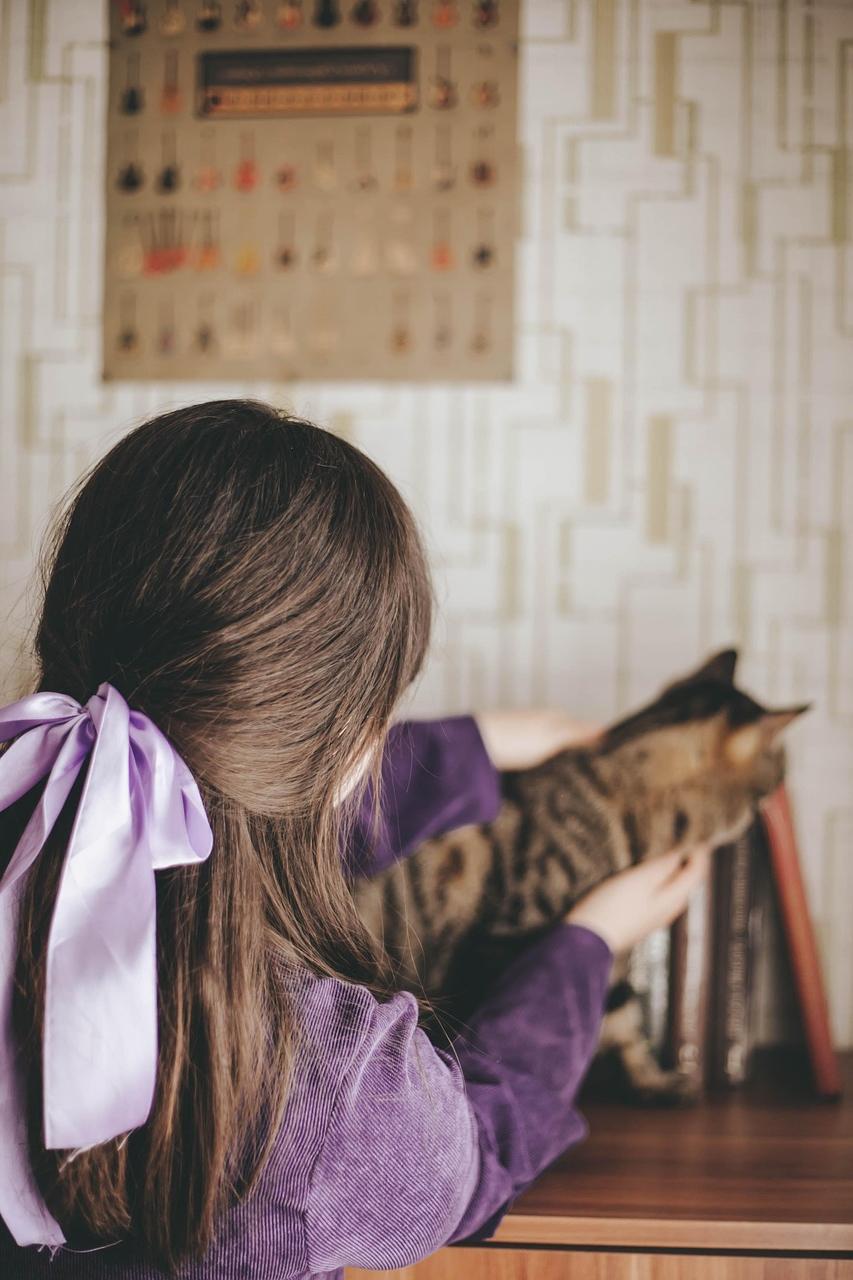
This way, they can do their thing without making a mess outside the box.
Try different materials to find your cat's preference.
Just like we have different preferences, cats also have opinions on litter substrates.
Some may like clay-based litter, while others prefer softer options like recycled paper or silica crystal litter.
It depends on your cat's personal taste, so don't hesitate to try out different types until you find the one they love.
Providing the right litter box is crucial for your cat's well-being.
Not doing so may lead them to find alternative places to do their business, and trust me, you definitely don't want that.
So take some time to understand your cat's needs and find the perfect litter box that both of you will appreciate.
But what if you've already chosen the perfect litter box for your cat and they're still peeing on things?
Well, there might be another important factor to consider:
The Role of Environmental Enrichment in Preventing Urine Marking
To stop cats from pissing everywhere, give them stuff to do.
Here's what you can do to keep stress low and marking minimal:
- Give 'em a perch: Set up spots by windows or tall furniture so they feel safe watching the world.
- Change their behavior: Use rewards and encouragement to get 'em to stop marking and focus on using scratching posts and toys instead.
- More litter boxes: Have a few scattered around the house so they always have somewhere clean to go.
- Use calming sprays: These things release soothing hormones that relax your cat and make 'em less likely to mark territory.
- Watch out for those outdoor kitties: Stray cats hanging around outside can really stress out your indoor cat. Take action to keep 'em away and avoid territorial battles.
Ensure a calm and joyful household by applying these suggestions that prevent your cat from urinating in inappropriate places, while maintaining patience and consistency throughout.
Tips for Introducing Multiple Cats and Preventing Territory Marking
| Topic | Tips for Introducing Multiple Cats and Preventing Territory Marking |
|---|---|
| Provide Separate Resources | Ensure each cat has their own food and water bowls, beds, scratching posts, and toys. This helps reduce competition and territorial disputes. |
| Gradually Introduce Cats | Start by allowing the cats to smell each other's scents through closed doors, and gradually increase their exposure to each other over time to prevent aggression. |
| Utilize Feline Pheromone Products | Consider using synthetic pheromone diffusers or sprays, such as Feliway, to help create a calming environment and reduce the likelihood of territory marking. |
| Create Vertical Space | Provide tall cat trees or shelving units to allow cats to climb and perch. Vertical space helps cats establish territory and reduces the need for marking on horizontal surfaces. |
| Increase Litter Box Availability | Have multiple litter boxes in different locations throughout the house. This reduces the likelihood of conflicts over resources and provides each cat with their own designated area. |
| Use Positive Reinforcement | Reward good behavior and provide praise and treats when the cats interact peacefully. This encourages them to associate positive experiences with each other's presence. |
| Seek Professional Help if Necessary | If territorial marking persists or conflicts escalate, consult a veterinarian or animal behaviorist for guidance. They can provide expert advice tailored to your specific situation. |
You want to know why cats pee on things and how to stop it?
Here's the deal:
Introducing new scents is the key. Rub towels on each cat, swap bedding - that's the ticket.
Litter boxes can be a challenge.
You need quiet spots for each cat to do their business.
One litter box per cat is recommended.
But wait for it...here's the kicker, two litter boxes per cat.
Yeah, you heard me right.
Cats are picky about sharing.
Now, let's get down to why they pee outside their designated areas.
They're not trying to misbehave, okay?
It could be conflicts or dislike for the litter box or litter itself.
Maybe medical conditions or feeling unsatisfied with their environment.
If aggression or territorial issues cause the problem, don't worry. Your vet can help with behavior modification techniques and meds if needed.
Adding another litter box might work wonders.
Actually, you should have an extra one beyond the number of cats, especially for multi-cat households.
Finally, shy or timid cats need their own space and litter box.
A stress-free environment makes all the difference.
I highly recommend checking out my blog post that explains why cats may not cuddle with you and offers tips to make your feline friend more affectionate.
You see, cats can have their own unique preferences and behaviors when it comes to affection.
If you want to understand why your cat avoids cuddling and discover ways to strengthen your bond with them, be sure to read my article on Why Doesnt My Cat Cuddle With Me.
It's packed with helpful insights that can help you create a more loving and fulfilling relationship with your furry companion.
Using Positive Reinforcement to Redirect Your Cat's Urination Behavior
If you want to change the way your cat pees, here are 10 things you can do:
- Give your cat treats or praise when they use the litter box correctly.
- Use positive reinforcement to reward good behavior.
- Don't punish your cat for peeing outside the litter tray.
- Focus on the good stuff instead of resorting to punishment.
- Always give treats or say nice things when your cat uses the litter box right.
- Teach your cat that using the litter box equals receiving rewards.
- Keep the litter box clean and inviting all the time.
- Choose a litter that your cat likes and finds comfy.
- Make sure the litter box is easily accessible for your cat.
- Stay patient and consistent while redirecting your cat's peeing habits.
To assist your cat in forming good habits and preventing the harmful consequences of discipline, you can practice these actions.
Positive reinforcement is key when training your cat effectively.
But what if your cat keeps returning to the same spots, despite your best efforts?
How can you effectively eliminate the odor and prevent future accidents?
The answer lies in understanding the importance of deep cleaning and using the right products.
Keep reading to discover the secret to a cleaner, odor-free home that will make your cat think twice before peeing outside the litter box...
Potential Solutions for Cleaning and Removing Cat Urine Odor
Cleaning up after your cat when they pee outside the litter box can be tough, but I've got some ideas that might help you out:
- When dealing with fresh accidents, forget about rubbing and grab some paper towels to blot up the urine instead. Trust me, this will make things way easier later on.
- Sofas and carpets often fall victim to cat urine, so it's important to clean these areas really well. Look for a stain and odor remover that's made specifically for pet accidents to do the job right.
- Don't overlook the possibility of underlying health issues causing your cat's bathroom problems. Regular vet visits can spot any urinary tract diseases or other medical stuff that might be behind the behavior.
- Keep that litter box sparkling clean! Nobody wants to go in a dirty restroom, not even cats. If it's nice and fresh, they'll be much less likely to pick somewhere else as their personal peeing spot.
- Changes around the house can stress out our feline friends, and that can lead to marking behavior. Manage those stress levels by sticking to consistent routines, giving them quiet spots to chill out, and providing plenty of entertainment.
- It's time to get serious with some deep cleaning action. You gotta break down those urine components and eliminate any lingering smells if you want your cat to steer clear of marked areas in the future. Try using an enzymatic cleaner to do the trick.
- Avoid anything that might tempt your cat to mark the same spot over and over again. Stay away from harsh chemicals or fragrances that could trigger their instincts. Look for products that won't set them off.
With these tips in your arsenal, handling cat urine odors will be a piece of cake.
But if your cat continues to pee outside the litter box despite trying the aforementioned solutions, don't worry – there's still hope.
In these cases, it may be necessary to seek veterinary assistance to address any underlying medical causes that could be contributing to the behavior...
When to Seek Veterinary Help for Persistent Urination Issues
If your cat keeps peeing outside the litter box, even after you've tried everything, it's time to bring in a professional. 🐾
You might have done everything you could.
But sometimes, there's an underlying medical issue that contributes to this behavior, not just bad habits or territorial marking.
So, here's when you should seek veterinary help for persistent urination issues:
- If your cat consistently and frequently pees outside the litter box, especially if they were previously trained to use it.
- If there's blood in their urine, which could indicate an infection, bladder stones, or other serious health conditions needing immediate attention.
- If they're straining or experiencing pain while urinating, often accompanied by vocalizations of discomfort.
- If their drinking patterns have changed, like excessive thirst or no interest in water at all.
- If you notice unusual odors coming from their urine, which may indicate infection or metabolic diseases.
- If their behavior has changed, such as increased aggression or clinginess, coinciding with the onset of urination problems.
Cats are experts at concealing their sickness.
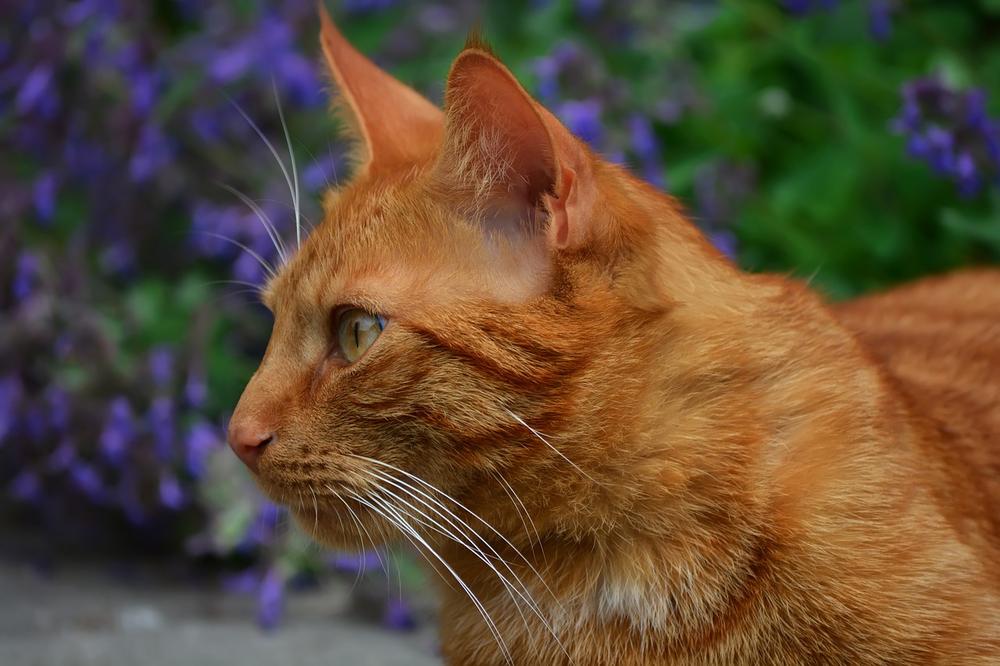
It's a survival instinct inherited from their wild ancestors.
So if you spot any of these signs, you need to consult a veterinarian right away.
They'll be able to determine if there's a medical condition causing the urination issues and discuss suitable treatment options with you.
Don't wait and let your furry friend suffer unnecessarily.
Get professional help and find effective solutions to make them feel comfortable again.
And that wraps up today's article.
If you wish to read more of my useful articles, I recommend you check out some of these: How to Discipline a Cat for Peeing Outside the Litter Box, Cat Peeing in Water and Food Bowl, and Food Aggression in Cats
Talk soon,
-Sarah Davis